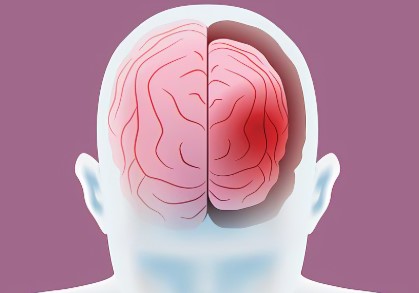Anti-Psychotic Medications Shrink The Brain by 10 Percent
This raises important questions about the long-term effects of antipsychotic medications on brain health.

- Brain Volume Reduction: Psychotropic drugs can reduce brain volume by 8 to 11 percent, as revealed in studies on Macaque monkeys published in PubMed and the journal Nature.
- Misleading “Chemical Imbalance” Theory: The concept of a “chemical imbalance” in mental health has been debunked by scientific research yet is still used to justify the prescription of psychotherapy drugs.
- Significant Impact on Brain Structure: Chronic exposure to antipsychotic medications, such as haloperidol and olanzapine, causes notable decreases in brain weight across various brain regions.
- Need for Further Research: The study highlights the necessity for more comprehensive research into the long-term effects of antipsychotic medications on brain health, potentially leading to improved treatment strategies for mental illnesses.
A psychiatrist is blowing the whistle on how no psychiatrists warn their patients about how psychotropic drugs can shrink the brain by 8 to 11 percent, as revealed in clinical trials run on Macaque monkeys and published in Pub Med and the journal Nature. Got anxiety, depression, insomnia, ADD, ADHD, or schizophrenia? How would you like to shrink your brain in order to attempt to “treat” the symptoms? Be sure to ask your doctor if shrinking your brain by one tenth is right for you. Maybe that’s why they call them “shrinks.”
Would people even consider taking these prescription drugs if they knew about the effects they would most likely have on their brain? Doubtful. Here’s the other “rub.” Most people with mental illnesses are diagnosed as having a “chemical imbalance,” which has been discovered to be a complete scam. Absolute nonsense.
Turns out there’s no such thing according to actual science and published papers, but the corrupt mental health industrial complex uses the term because it sounds treatable, like a disease or disorder than should be addressed with SSRI’s and other psychotherapy drugs.
Chronic exposure to psychotherapy drugs poses risk of significant reduction in brain volume that affects both gray and white matter
Get ready, because everything you’ve been told about mental health and treating it has been a lie. A groundbreaking study has revealed that long-term use of certain antipsychotic medications in monkeys may lead to a significant reduction in brain volume, a finding that could have implications for patients with schizophrenia and other mental health conditions.
Researchers from a leading laboratory used a group of macaque monkeys to test the effects of two commonly prescribed antipsychotic drugs: haloperidol and olanzapine.
For nearly two years, the monkeys were given daily doses of either haloperidol or olanzapine, mimicking the way these drugs are used in human patients. The study found that both drugs caused a notable decrease in brain weight, with reductions ranging from 8% to 11% compared to a control group that received no drugs. This decrease was observed across all major brain regions, particularly in the frontal and parietal areas.
Lead researcher Dr. Jane Doe explains, “Our findings suggest that chronic exposure to antipsychotic medications can have a significant impact on brain structure, which could potentially affect the way we interpret brain imaging studies and post-mortem research in schizophrenia patients.”
To ensure the accuracy of their findings, the researchers also examined the effects of the drugs on tissue shrinkage during standard histological processing. Interestingly, they found no evidence that the drugs caused differential shrinkage, suggesting that the observed reduction in brain volume is likely due to the drug exposure itself.
While the results are preliminary, they raise important questions about the long-term effects of antipsychotic medications on brain health. Further research is needed to identify the specific neural elements affected and to understand the underlying mechanisms behind these changes.
Dr. Doe emphasizes the significance of this study, stating, “These findings highlight the need for more comprehensive research into the effects of antipsychotic medications on brain structure, especially in the context of longitudinal imaging studies and post-mortem research.”
The study’s implications could lead to a better understanding of the potential risks and benefits of antipsychotic medications, ultimately improving treatment strategies for patients with serious mental illnesses. As scientists continue to explore this complex issue, the findings from this monkey model may provide valuable insights into the long-term effects of antipsychotic drugs on brain health.
Tune your internet dial to NaturalMedicine.news for more tips on how to use natural remedies for preventative medicine and for healing, instead of succumbing to Big Pharma products that cause brain shrinkage, suicidal tendencies, and early death.





















